Introduction
There is a great deal of marketing hype about the effect of conjugated lipoic acid (CLA) supplements on fat loss. While there are some benefits to CLA supplementation, this article looks at the scientific facts on CLA, emphasizing its effect on fat loss.
What is CLA?
Conjugated Linoleic Acid is a fatty acid that is found in meat and dairy products. Linoleic acid is an omega-6 fatty acid found in primarily in vegetable oils and smaller amounts in various foods. Conjugated, on the other hand, refers to the arrangement of double bonds in fatty acid molecules.

An omega-6 fatty acid is a polyunsaturated fatty acid. Due to its structure, it is considered a trans-fat. Unlike industrially produced trans fats, which may be harmful when consumed in large quantities, CLA is a naturally occurring trans-fat and found in many healthy foods.
There are varying forms of CLA- about 28 in total, and the significant difference in these forms is that their double bonds do not have the same arrangement. As seemingly minor as this difference may be, they possess tremendous effects on the body’s cells.
Where can CLA be found?

CLA is mainly found in the meat and milk of animals, such as cows, goats, and sheep – it is naturally produced in these animals. The digestive system of cows and other pastured ruminants, such as goats, contains an enzyme that converts omega-6 fatty acids found in green plants to CLA. The CLA is then stored in the muscles and milk of the animals.
It is important to note that the amount of CLA in foods can vary significantly based on animals’ eating. For example, a clinical study published in the Journal of Dairy Science found that the CLA content of beef and dairy from cows fed on grass was 300-500% higher than that of cows fed on grains.
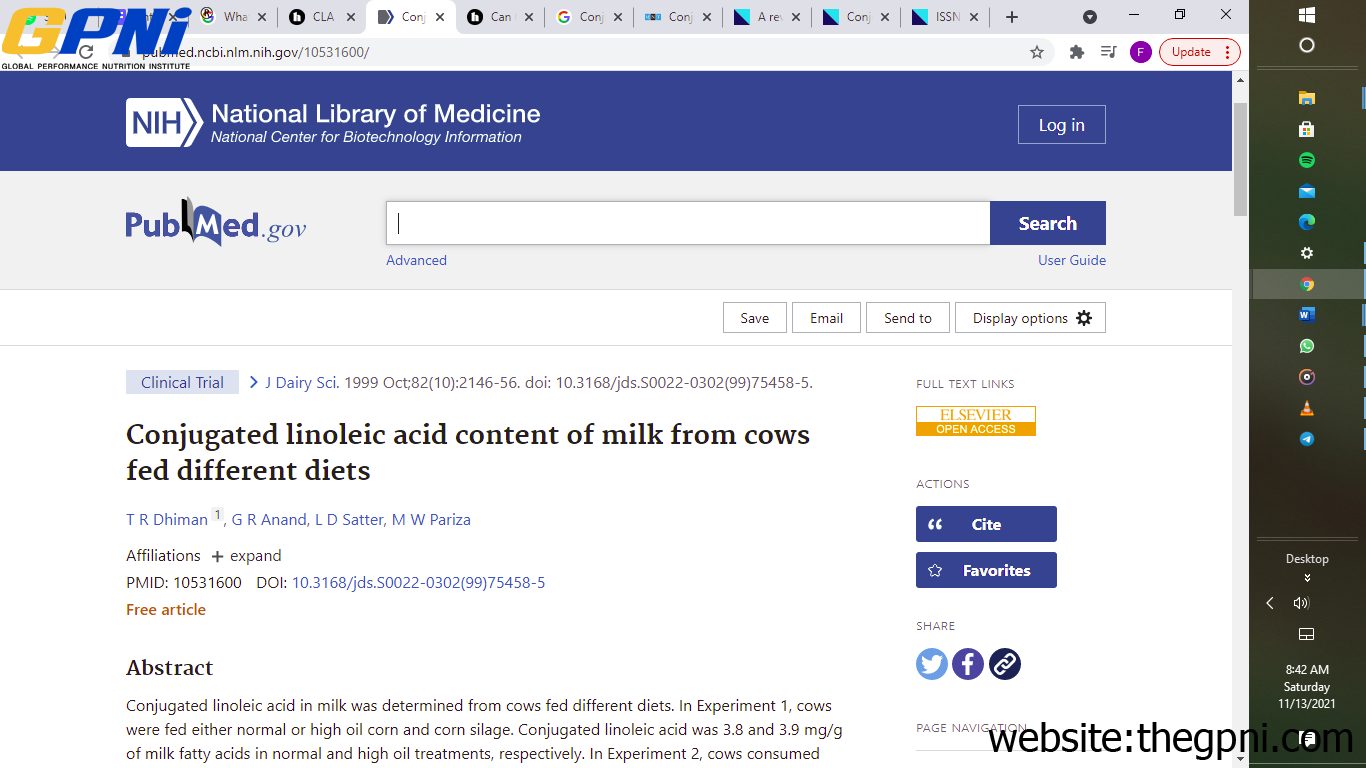
Read full details on the study here:
Since CLA is not an essential fatty acid, you do not need to consume it for optimal health. Nevertheless, many people take CLA supplements as they are purported to burn fat.
Composition of CLA in supplements

Supplemental CLA is not derived from natural foods but from chemically modifying linoleic acid found in vegetable oils. This leads to a vastly altered balance of different CLA forms in supplements. Additionally, they contain types of CLA not naturally found in large quantities. Due to this reason, CLA supplements do not have the same health benefits as dietary sources of CLA.
CLA and Fat Loss
There is a lot of hype in the media about the role of CLA in fat loss. However, the body of scientific research is still unclear. Evidence suggests there may be some effects, yet, they are minimal and unconvincing, especially in humans.

In a review of the effect of supplements, the International Society for Sports and Nutrition (ISSN) stated concerning CLA that: Despite its widespread marketed use as a weight loss and health supplement, there is little evidence that supplementation with CLA has any effect on humans.
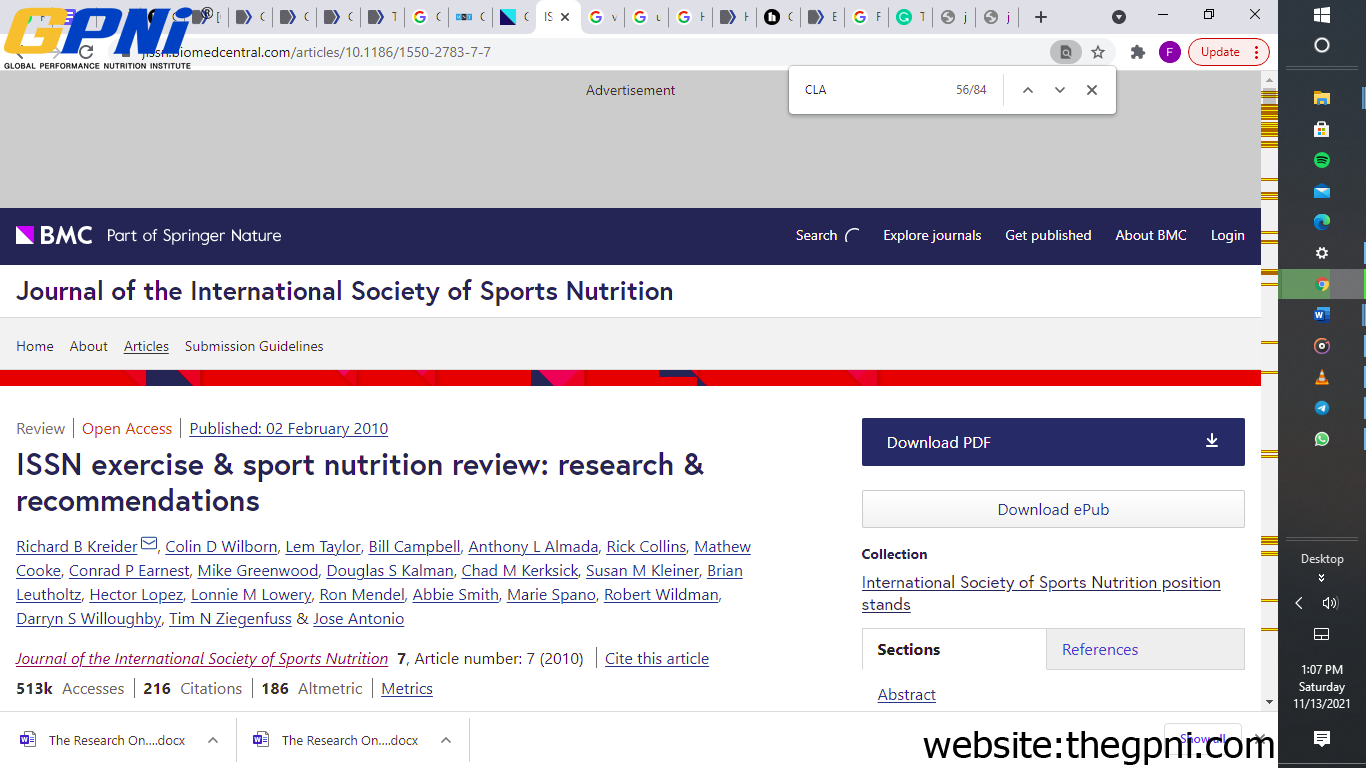
Read full Details here
Indeed, as stated by the ISSN, there have been different results from studies that measured the impact of CLA on fat loss. For instance, a study conducted by the NCBI on the effect of CLA supplementation on obese young women, reported no reductions in body fat or improvement in lipid profiles when CLA supplementation was combined with aerobic exercise.
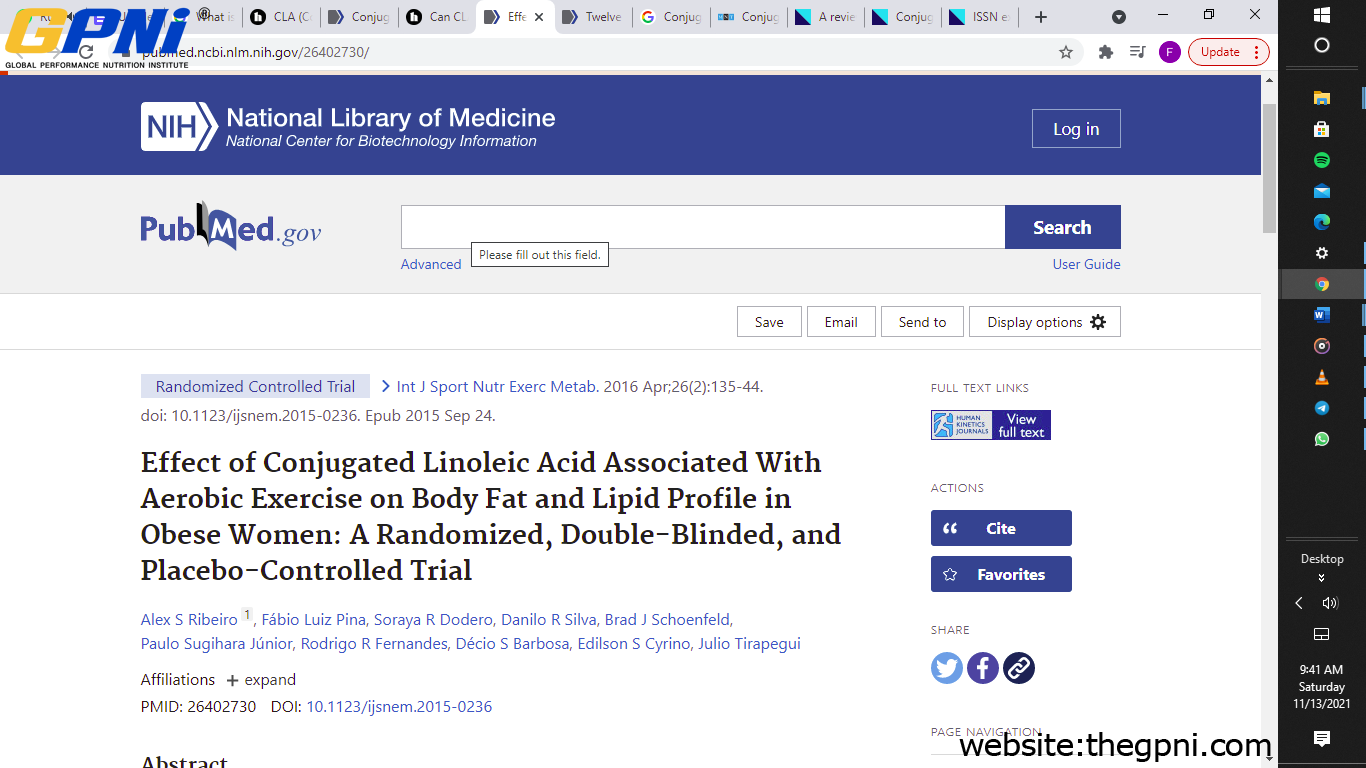
Read full Details here
Another study published by the JISSN examined the effects of CLA on visceral adipose tissues (VAT) in middle-aged men engaging in resistance training. The results showed no decreases in VAT following supplementation with 3.2 g/d CLA for four weeks. VAT is a component of total body fat that is hormonally active.
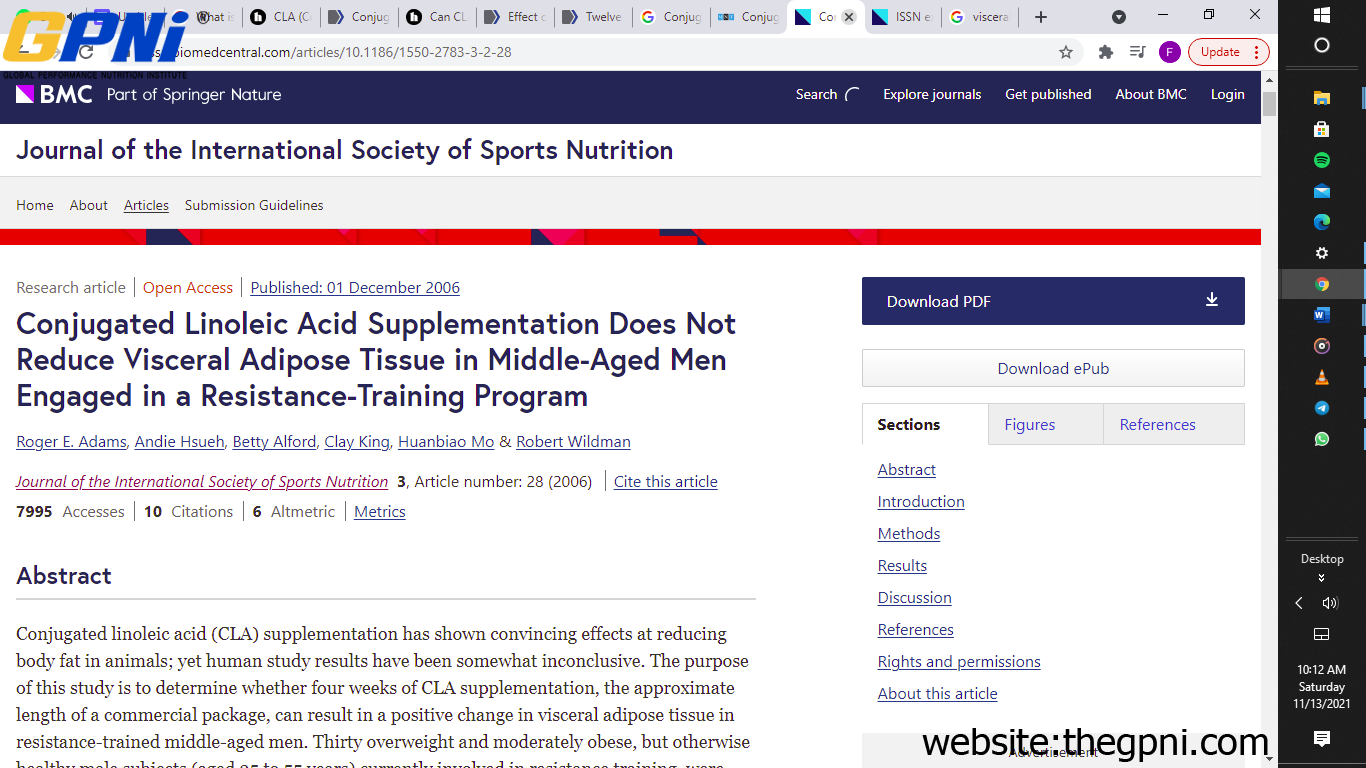
Read full details of the Study here
The European Journal of Clinical Nutrition published another review that revealed the minimal effect of CLA on fat loss. The review concluded that the effects are minor, the clinical relevance is undetermined, and the evidence does not support a clinically relevant effect of CLA intake on body composition over the long term.

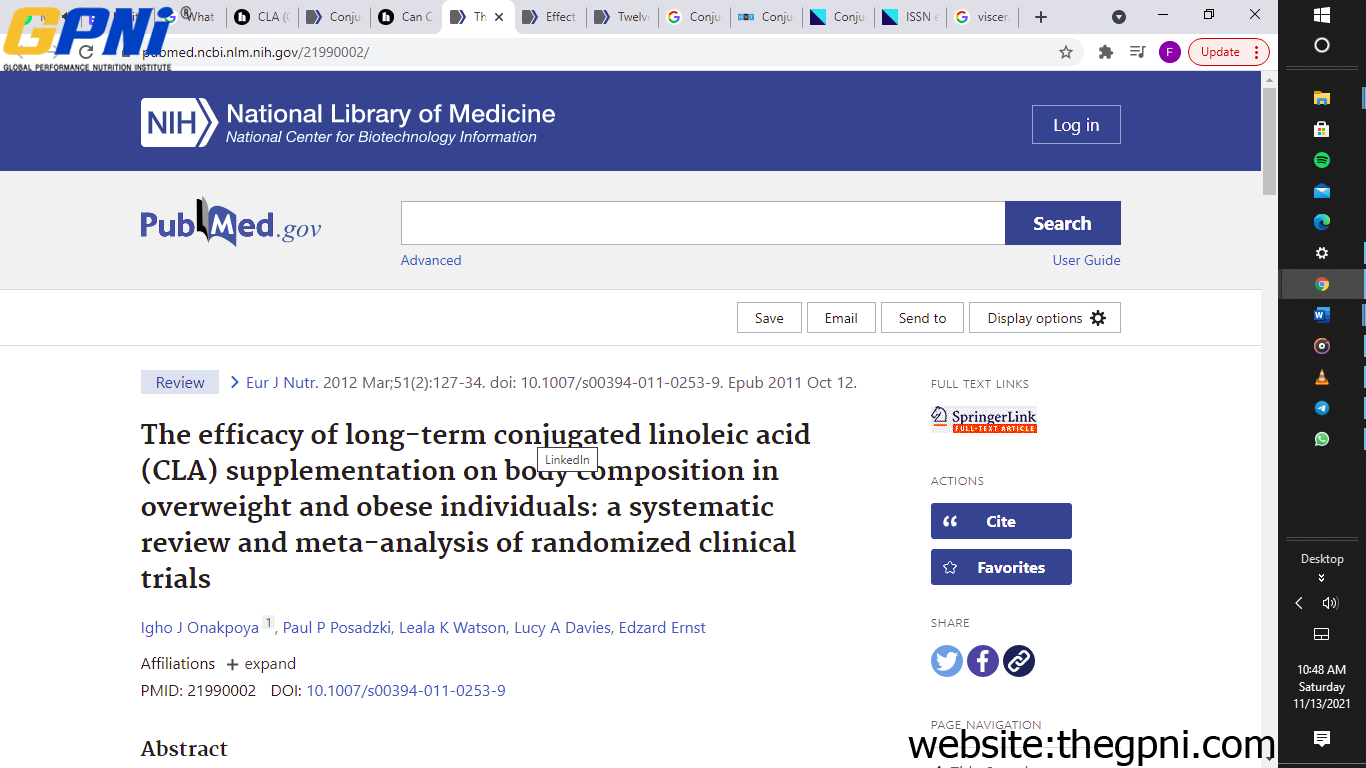
Read full details of the Study here
Yet, in a 24-month randomized, double-blind placebo-controlled study published by the JISSN, CLA had some effect on body composition. According to the authors, CLA supplementation in overweight adults is well tolerated, and can help reduce body fat and maintain long term weight loss in overweight people.
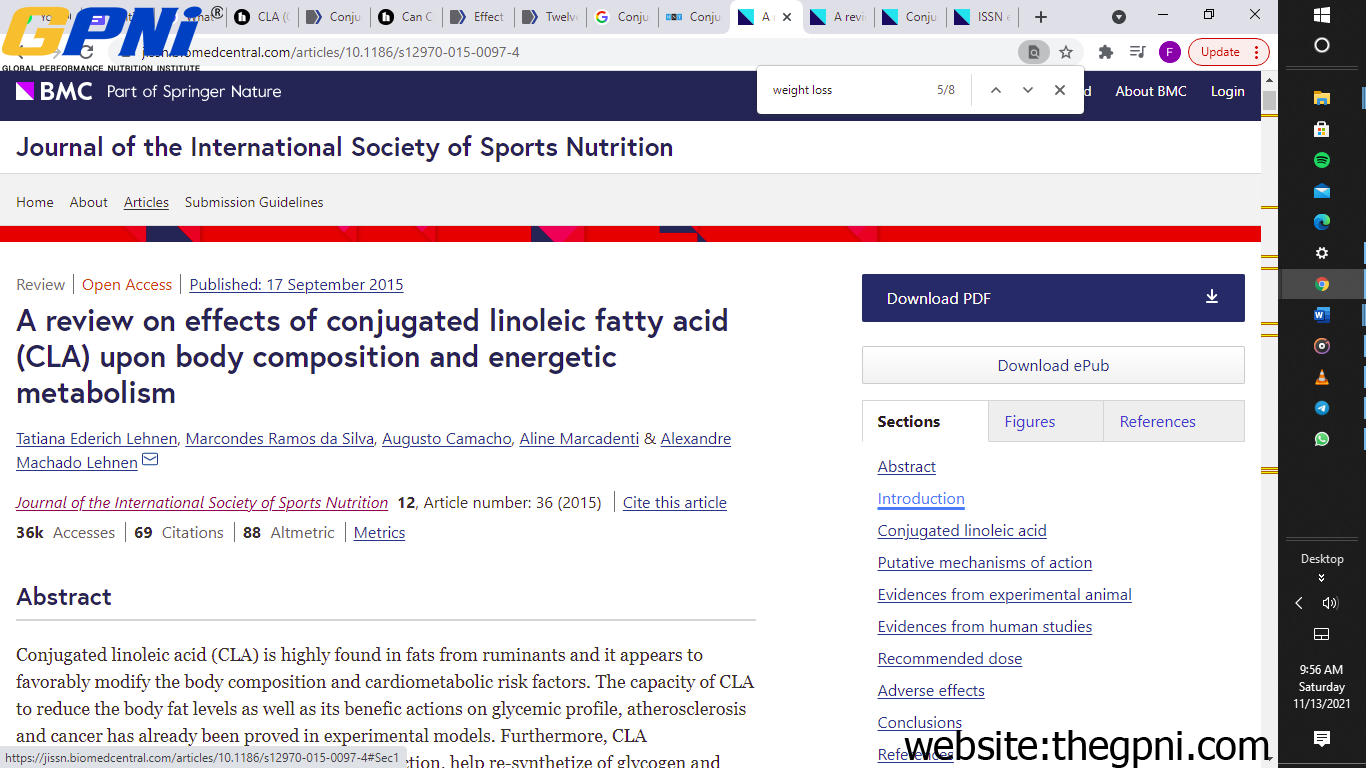
Read the full ISSN Review here
Despite the seemingly conflicting evidence, it is clear that CLA is not considered a miracle fat-loss supplement within the scientific community.
It is important to note that CLA clearly affects weight loss in animal studies. For instance, in a study conducted in mice, observed a 70% reduction in body fat following 6 weeks of CLA supplementation when compared to a placebo.
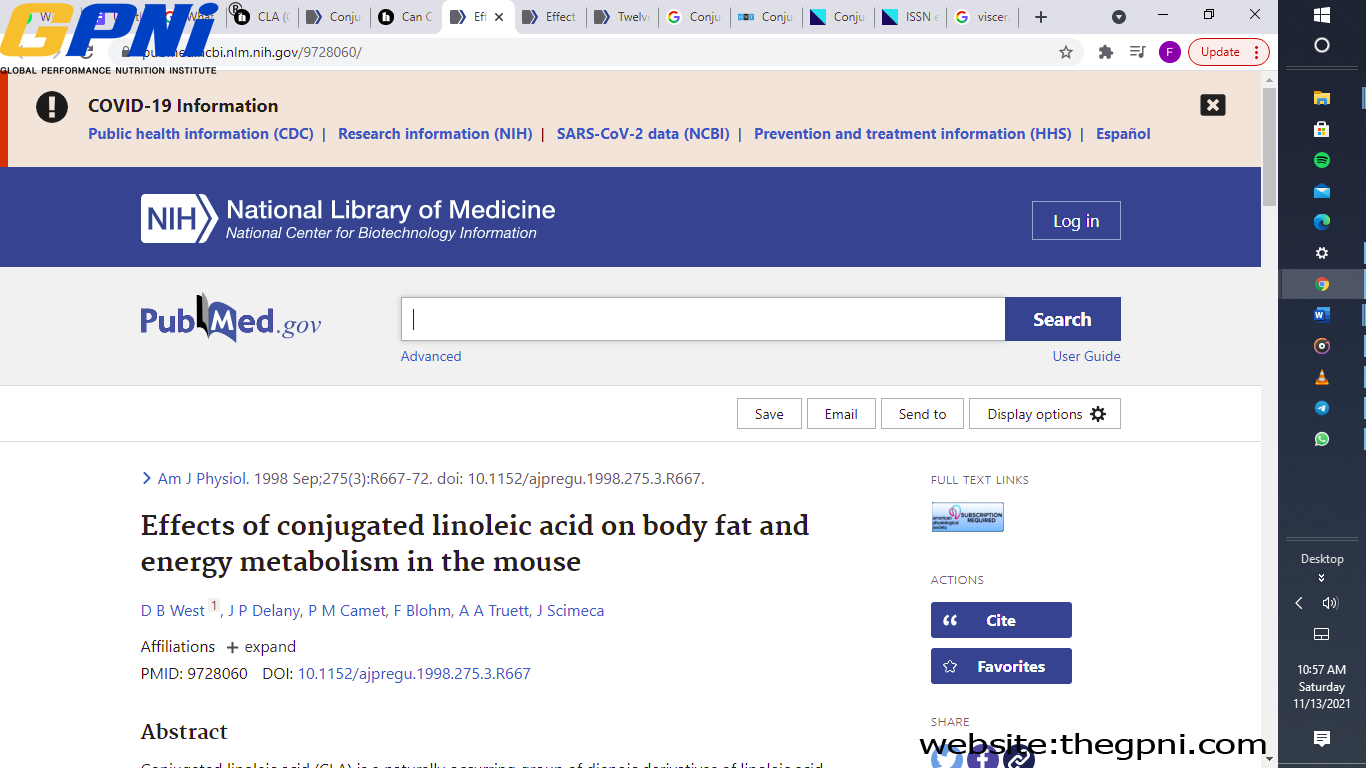
Read full Details here
Another study found that CLA reduced fat growth in pigs in a dose-dependent manner. In other words, increasing the dose of CLA led to a slower rate of fat growth.
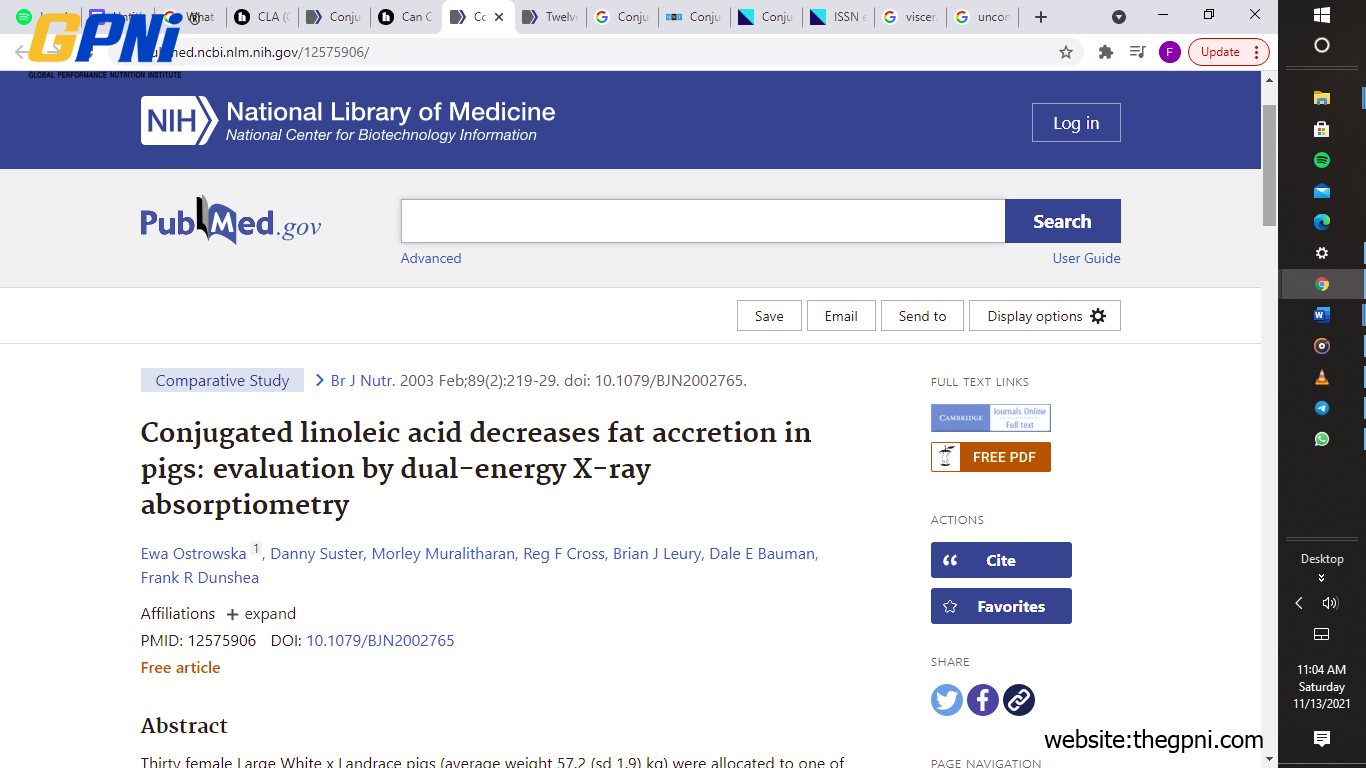
Read full Details here
Other Potential Health Benefits of CLA
Studies have shown that CLA possesses certain health benefits for the body. One of the most notable benefits is a lower risk for disease. Individuals who consume foods that are rich in CLA have a lower risk of developing certain diseases, particularly cancer and type 2 diabetes.

A study published in the American Journal of Clinical Nutrition examined the effects of CLA in adipose tissue and the risk of diabetes. The authors reported a link between CLA and diabetes risk which suggests CLA could play a role in insulin regulation.
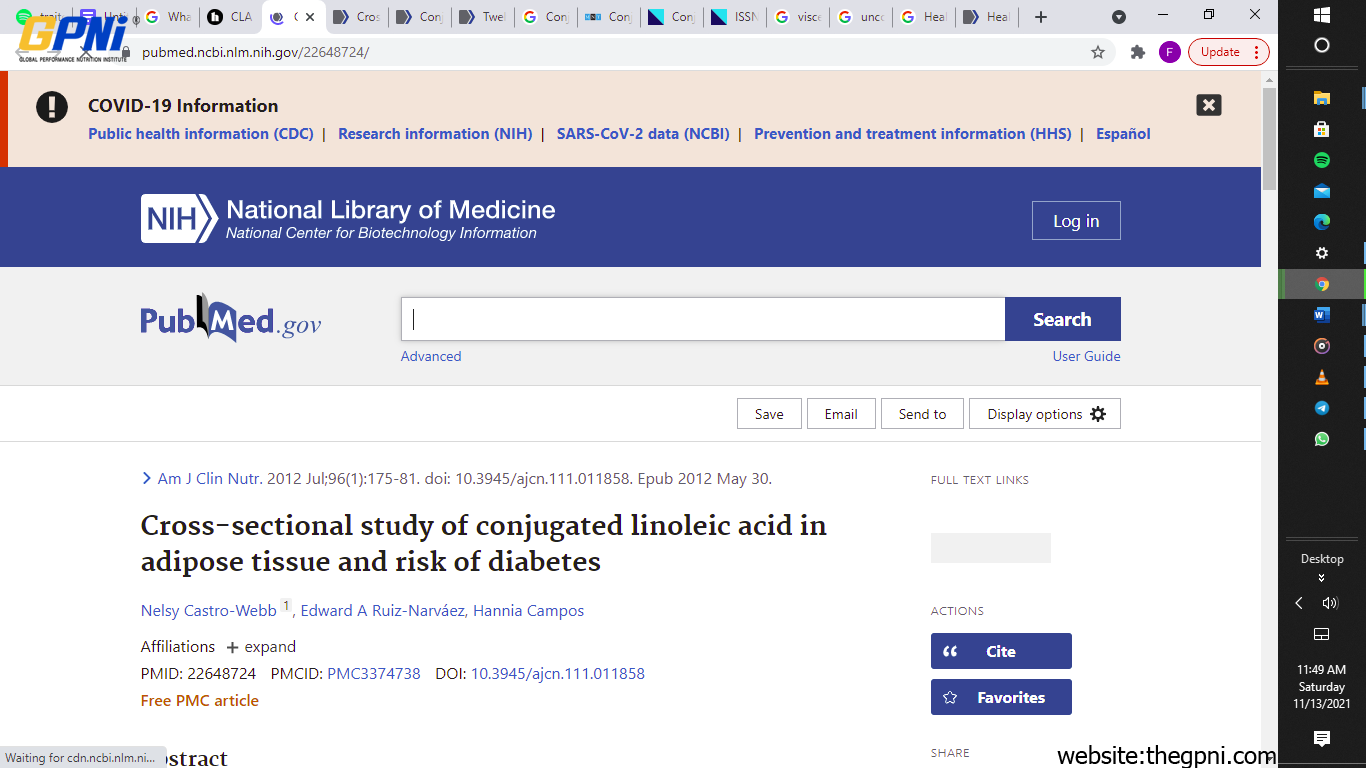
Read full Details here
In a paper studying the potential role of CLA in breast cancer prevention stated that: Studies have found CLA to be potentially beneficial in obesity, atherosclerosis, diabetes, insulin resistance, inflammation, cardiovascular diseases, osteoporosis, and various types of cancer, especially breast cancer.

Other Potential Health Benefits of CLA
There has been debate about the safety of CLA supplements for a long time. Studies have reported of CLA supplementation to be well tolerated, but other studies suggest potential adverse effects. A meta-analysis published in the European Journal of Clinical Nutrition, found CLA supplementation was associated with an increase in levels of C-reactive protein, which indicates inflammation.
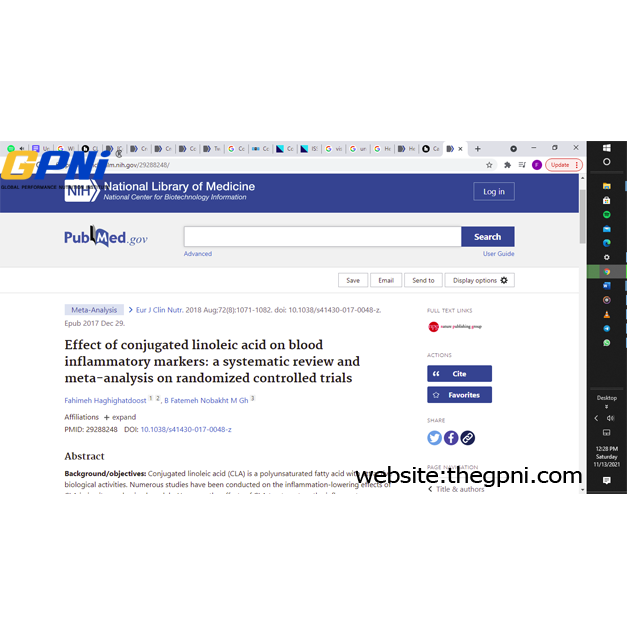
Read full details of the Study here
While inflammation is necessary for fighting off pathogens or for initiating tissue repair after a wound, chronic inflammation is linked to several diseases, including cancer.
These health concerns likely arise because the CLA found in supplements differs from the naturally occurring CLA in foods.
For instance, meat and dairy products contain the c9, t11 form of CLA, while supplements contain the t10, c12 form. Therefore, CLA obtained through dietary means has different health effects than CLA obtained through supplements.
It should be noted that the United States Food and Drug Administration (FDA) deems CLA safe for use in foods and gives it GRAS (generally regarded as safe) designation. Until more research is available, however, Healthline experts recommend avoiding prolonged or large doses (a dose of six grams twice per day is generally considered safe, with no side effects reported) of the supplement. A safer alternative may be to consume CLA-rich foods.
Conclusion

Overall, research suggests that CLA supplements may not be effective for fat-loss platform and that prolonged and high doses may be unsafe. However, CLA still does have potential health benefits for an individual.
To know more about CLA and fat loss, get more learning resources such as those listed below, and get registered today to be a Sports Nutrition Specialist (SNS®) on the GPNi® platform.

You can also choose one of our Continued Education Certificate programs such as the Endurance & Marathon Nutrition Coach Nutrition Coach (EMNC®) certificate program
Reference
https://jissn.biomedcentral.com/articles/10.1186/s12970-015-0097-4
https://jissn.biomedcentral.com/articles/10.1186/1550-2783-3-2-28
https://jissn.biomedcentral.com/articles/10.1186/1550-2783-7-7
https://www.ncbi.nlm.nih.gov/pmc/articles/PMC6413010/
https://www.healthline.com/nutrition/cla-and-weight-loss#TOC_TITLE_HDR_6
https://jissn.biomedcentral.com/articles/10.1186/s12970-015-0097-4
https://www.healthline.com/nutrition/conjugated-linoleic-acid#bottom-line
https://www.ncbi.nlm.nih.gov/pmc/articles/PMC4574006/







